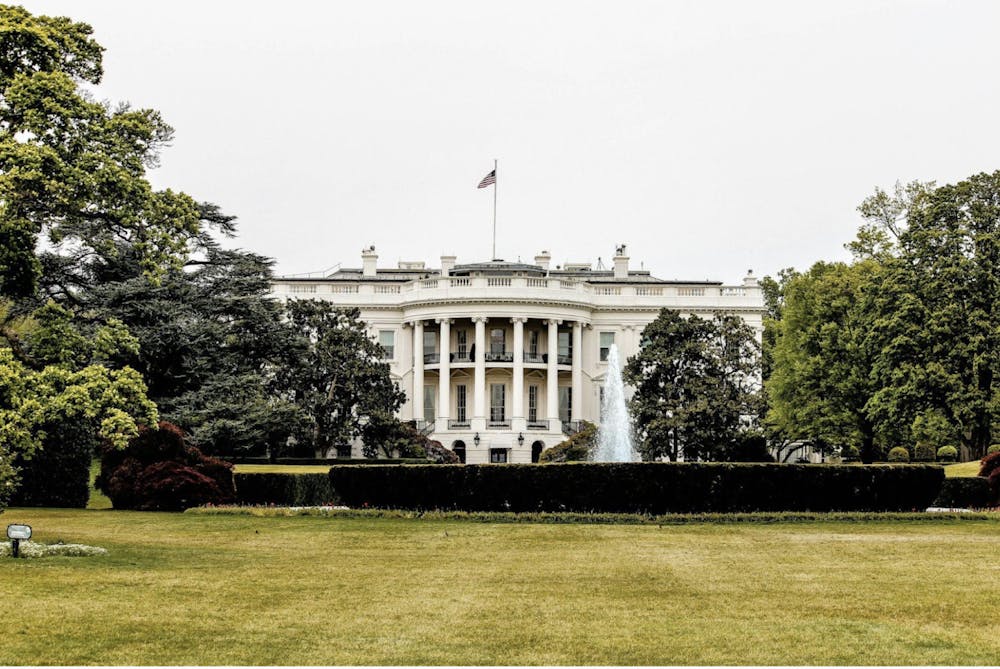On Oct. 30, I wrote an article discussing predictions and outcomes for the 2024 election. One of those outcomes was that Donald Trump would be elected president, but I believed it was extremely unlikely he would gain both House and Senate control. One week after the election, it appears that Trump could have complete control over Congress and the government. But how did this happen, and what does it mean for Americans over Trump's presidential term?
Elections are won and lost based on complex and interconnected factors. Still, in this election, Trump’s victory can be generalized to his success in seven key states: Arizona, Michigan, Georgia, Nevada, North Carolina, Wisconsin and, of course, Pennsylvania. Trump managed to beat out Kamala Harris in every one of these swing states, ultimately winning the presidency. I believe that common sense allows for the conclusion that Donald Trump is no one’s first choice for President of the United States. After all, he is a felon, and his last presidency ended in the chaos of the Jan. 6 insurrection. Therefore, Trump’s election to the White House indicates that Americans are willing to overlook these issues in the hope that he will bring change to the nation. This fact, coupled with Joe Biden’s late decision to withdraw from the presidential race and Kamala’s inability to separate herself from the Biden administration, led to Trump’s election.
I mentioned that Trump was elected to bring change to the nation, which seems to be Trump’s plan. In his first 100 days in office, Trump has claimed that he will focus on a few significant issues: ending the Russo-Ukrainian War, closing the Mexican-American border and beginning mass deportations, enacting executive orders reclassifying government employees and starting to undo the Biden administration’s climate initiatives. Trump has claimed that he would be able to end the war between Russia and Ukraine within 24 hours, so this would be a significant starting point for his presidency, likely by decreasing American support for the defense of Ukraine. Trump has also claimed that he will close the Mexican-American border and begin a large-scale mass deportation of illegal immigrants. However, this claim will likely be challenging to enact. The deportation of that many people would require a substantial amount of manpower and state cooperation, which is not that feasible. Still, it is likely to see the closing of the border and the start of deportations throughout the country.
Trump also plans to lower the guard rails of the American political system by reclassifying several federal employees into at-will employees, which would give Trump the direct ability to remove them from their positions and replace them with his supporters. This would give Trump even more control over enacting his policies. Trump already has the Supreme Court in favor, and if he gains congressional control, his policies could be implemented much more quickly. Trump also plans to pull out of the Paris Climate Accords and will begin to increase American drilling, further impacting the already dire state of climate change.
Another critical issue that could come up during the Trump presidency is the issue of abortion. Trump’s last presidential term saw the overturning of Roe v. Wade, which had significant implications in turning abortion laws back to the states. Trump has publicly said that he would veto a national abortion ban if it came to his desk. Still, there could be other ways to enact broadscale restrictions and access to abortion services nationwide. One avenue to achieve nationwide abortion restriction could be in the enacting of the Comstock Act of 1873. The act was made void by passing Roe v. Wade but never fully repealed. This means that since the overturning of Roe v. Wade, the law has been in effect but not enforced. If the Comstock Act were to be interpreted literally and enforced, it could prevent the transport of contraceptives, abortion pills, drugs, medical instruments or any other abortion-related materials by mail. This would effectively make abortion impossible even in the states where it remains unrestricted, impacting millions of women by giving the government unwarranted control over their bodies.
Ultimately, Trump’s reelection to the White House will have incredibly large implications for millions of Americans and people worldwide. However, Trump’s election also encapsulates the inherent nature of the American political system, the fact that people can choose to change the nation how they best see fit. That view and conception of what the Nation looks like may look different from one person to the next, but it is essential to remember that it comes from the central hope of seeing America prosper and retain its place on the world stage.
Declan is a surviving biochemistry major at the University of Notre Dame. He is usually trying to figure out how to work the printer. Contact at dburke7@nd.edu.










